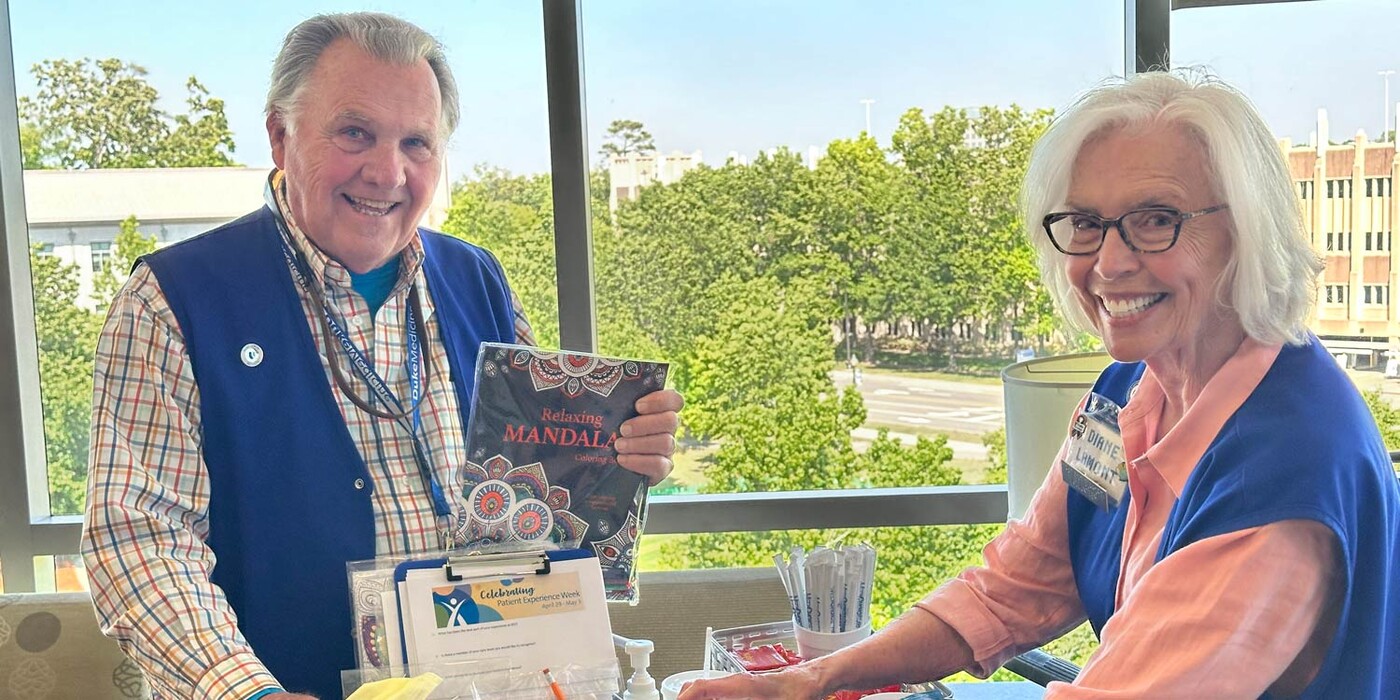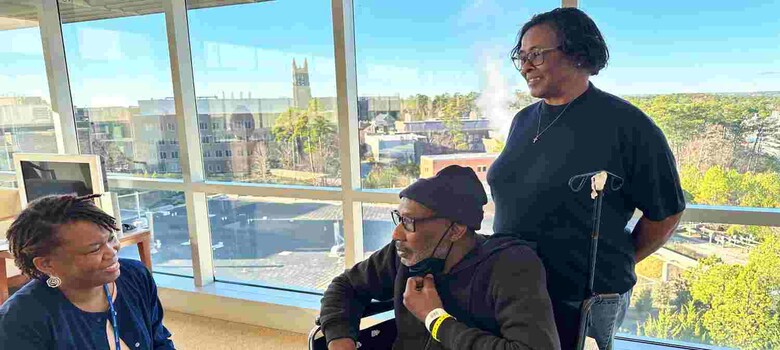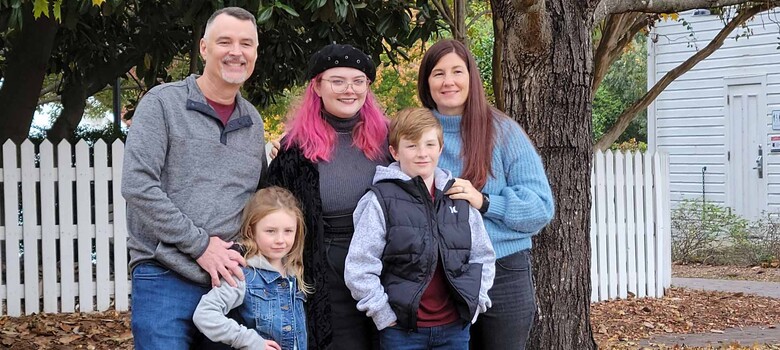Cancer Survivors Give Back Through Volunteering

Watching Diane and Dean Lamont push the engagement cart around a waiting room in the Duke Cancer Center, you can sense that they share a common mission and purpose. The feeling doesn’t only come from their matching blue vests that say “Duke Cancer Patient Support Program” and “Volunteer.”
The Lamonts manifest their mission through the kind and caring way they speak to people while they distribute snacks, cold drinks, and adult coloring books. And through the way they connect their 36 years of volunteering to their own experience with cancer. The married couple are survivors of Dean’s non-Hodgkin’s Lymphoma, diagnosed more than 30 years ago. At that time, cancer support programs were in their infancy.
The Value of Cancer Support Groups
Experts in the fledgling field defined “survivor” narrowly as only the people who had the cancer, and only those who had finished their treatment and experienced remission. The couple noticed that people with cancer needed more support than they were getting. “There weren’t the programs that Duke is offering today,” said Dean.
The Lamonts began an informal support group at their church, where many people with cancer had been asking for prayers. The response was so strong that the group, which served 25 people at its peak, lasted for nine years.
Dean also attended a support group at Duke. “I was having a lot of nausea, and I wasn’t doing well mentally,” he said. An oncology nurse who also recognized the importance of support started the group with 5 people. “He was so compassionate. He really knew what to say and how to get us talking about what mattered,” said Dean.
Now survivorship, and the extensive, programmatic support provided by the Duke Cancer Institute, begins at the moment of diagnosis,” said Cheyenne Corbett, PhD, Director of Cancer Support and Survivorship at the Duke Cancer Institute (DCI). “We support caregivers too.”
The DCI's Supportive Care and Survivorship Center at DCI has more than 10 initiatives spanning clinical services, research, education, and training. That includes training for volunteers who wrap people in warm conversation and timely snacks while they sit in waiting rooms.
Enjoying Interactions with People
The Lamonts say their favorite part of volunteering is their interactions with people. “The engagement cart is a conversation starter,” said Diane. When Dean tells people he is a cancer survivor, they ask him questions. “I tell them I had exploratory surgery, two protocols of chemo, eighteen drugs, radiation,” he said. “Yet here I am. That gives them hope.”
Recently, Diane won Duke Health’s 2024 Volunteer Lifetime Achievement Award, a significant recognition of her long-term dedication, commitment, and impact in volunteerism for her 36 years of service.



